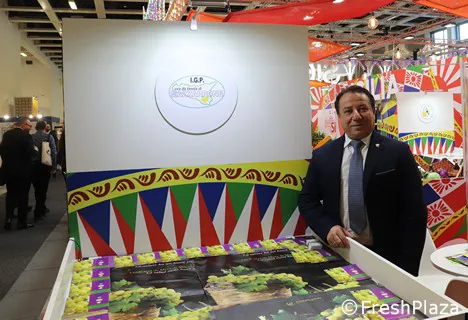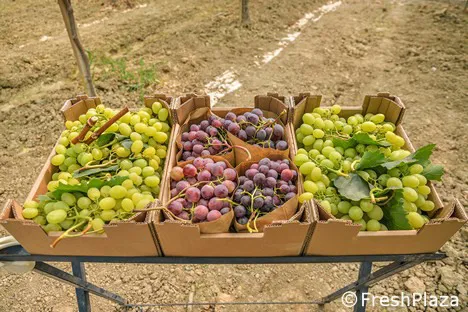What is happening with grapes grown in the Mazzarrone area of Sicily may be a good example of how crises can also bring opportunities. Gianni Raniolo, an agricultural entrepreneur and president of the Mazzarrone Igp Grape Consortium, spoke on this, and described the state of affairs in an area firmly tied to the cultivation of grapes for consumption.
 Gianni Raniolo
Gianni Raniolo
"Over the past few years, the major companies have started focusing on seedless grapes," said Raniolo. "The reason behind the decision to diversify was intentional, aimed at intercepting market shares still unexplored for the Sicilian producers. Now, with the crises that have been cyclical for years, growing seedless grapes is no longer just an option for range expansion, but an unavoidable requirement if you want to stay in the markets."
It's time for a change
"For some years now, breeding companies have been issuing a number of licenses to grow seedless grapes in our territory," continued the grower, "which allows companies to meet market demands. To understand the extent to which it is somewhat anachronistic not to invest in seedless varieties, one should only consider that in some parts of the world the new generations do not even know about seeded grapes.
"However, this in no way means that traditional varieties should be abandoned; if anything, it is necessary to retrain production and gear it toward high quality. Obviously, there is a need to conduct a sorting process, especially in those older vineyards, where there is a risk of harvesting fruit of mediocre quality, dragging down the entire production at the commercial stage. This must not happen again."

“In this regard, several meetings have taken place in recent weeks," continued the specialist " which have involved not only the most important producers in our area, but also those in Canicattì (where, however, there is still much to be done), as well as important associations and institutions whose task is to support varietal reconversions. It is not only producers grappling with repeated crises in the sector who are calling for action at all levels, but the markets as well. Proof of this was seen during the recent international fairs we attended where we had the pleasure to meet with our old business partners again and establish new business relations. A good part of the requests concerned seedless varieties and it will be precisely these that, in the 2023 commercial season, will have an important weight in the turnovers of the companies in our district."
"We can say," concluded Raniolo, "that the conversion to seedless, which started a few years ago in the area, now involves 10 percent of total production, but is expanding every year, which leads us to think that within the next three to four years it will concern 50 percent of the product grown in this area of Sicily.
For more information:
Giovanni Raniolo
Consorzio di Tutela
dell'Uva da Tavola
di Mazzarrone Igp
+39 335 1033575
info@uvadimazzarroneigp.it
https://www.uvadimazzarroneigp.it
